I had a number of important plans and goals yesterday which I conveniently set aside to build kits instead. Have you ever had one of those days?
Building kits is a little like therapy for me. I find it relaxing, fun, and it gives me an opportunity to tune out everything else in the world while that soldering iron is hot.
The first kit I built was one I purchased this year at Hamvention: the Ham Radio Workbench 12 VDC Power Distribution Strip.
I’ve been on a search for two types of fused Anderson Powerpole distribution panels: a portable one for the field with at least 4 ports, and a large one for the shack with 12-16 ports and at least two USB 5VDC ports.
Sadly, there is no large one on the market that I would like right now. I checked every vendor at Hamvention and the Huntsville Hamfest this year and while there are large panels available, none of them have USB ports. That and the price for a 12-16 position DC distribution panel can easily exceed $120.
As for the small panels for field use, many of them are a bit too bulky and pricey. The inexpensive ones lack individually fused ports.
My buddy Dave (K4SV) knew I was on the hunt, so at Hamvention he directed me to the Ham Radio Workbench podcast table. There, I found the ideal portable solution in kit form. And the price? A whopping $25.
Take my money!
Yesterday, I built the kit in near record time. It went together so fast, I forgot to take progress photos.
What I love about this DC distribution kit is it actually has more features than other products on the market:
- There’s a green LED to indicate power has been applied to the panel and a red LED to indicate any faults
- Each position is individually fused with standard blade fuses
- Each position also has a red LED to indicate if the fuse has blown
I also love the size and configuration.
The kit does not come with an enclosure or base of any sort, so I had planned to simply attach it to a dielectric plate to prevent the bottom of the board from shorting on a conductive surface.
This morning, however, I discovered a 3D-printed enclosure from Rocket City 3D:
This enclosure protects the entire panel on all sides so I’ll be able to throw it in my backpack and not worry about the connectors snagging on other items. The price is a reasonable $12 shipped. Done!
This little DC panel pairs well with the 4.5 aH Bioenno Lithium Iron Phosphate battery I purchased on sale at the Huntsville Hamfest. Together, they’ll power the portable SDR system I’m putting together. More on that in a future post! Stay tuned!
Click here to check out this kit at HamRadio Workbech. It’s currently out-of-stock, but you might contact HRW and see if a future run is in the works. Click here to check out the custom enclosure from Rocket City 3D.
UPDATE: I understand Ham Radio Workbench may eventually print the circuit boards for this project. In the meantime, another affordable option I’ve used is this pre-built panel from Electro Sales on eBay: https://ebay.us/UyJPkh
Do you enjoy the SWLing Post?
Please consider supporting us via Patreon or our Coffee Fund!
Your support makes articles like this one possible. Thank you!

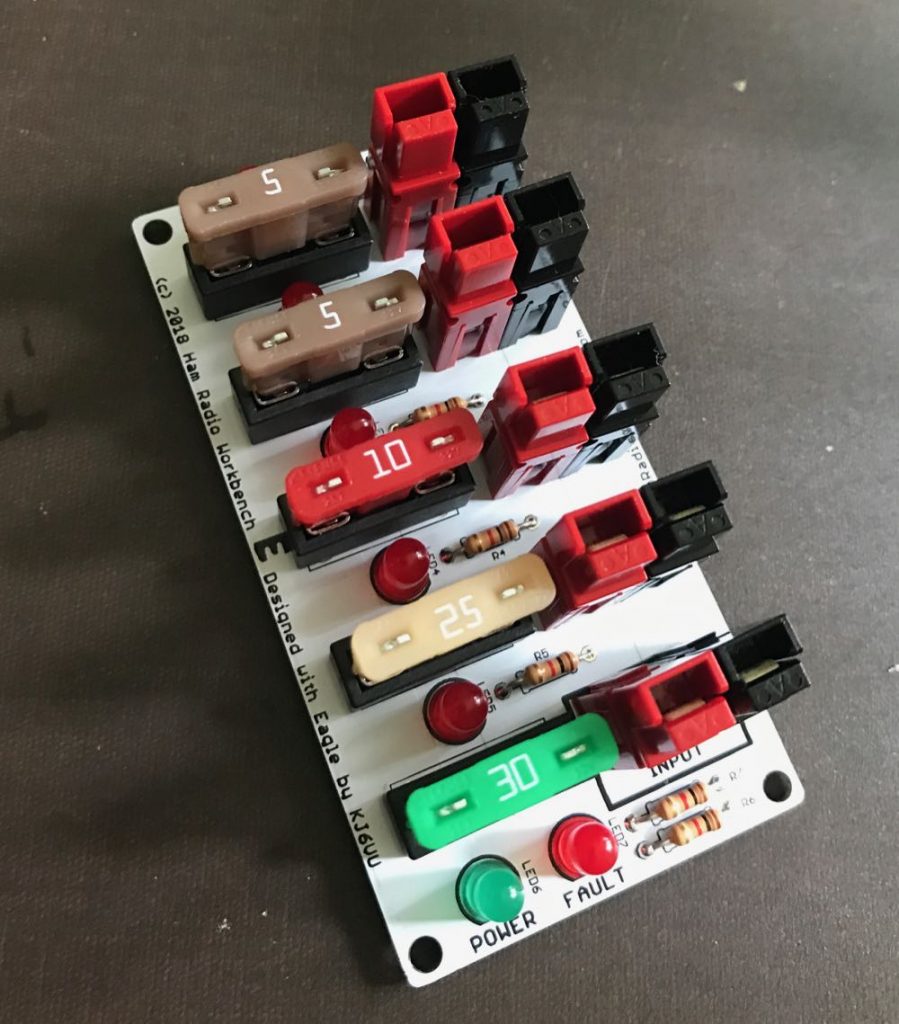
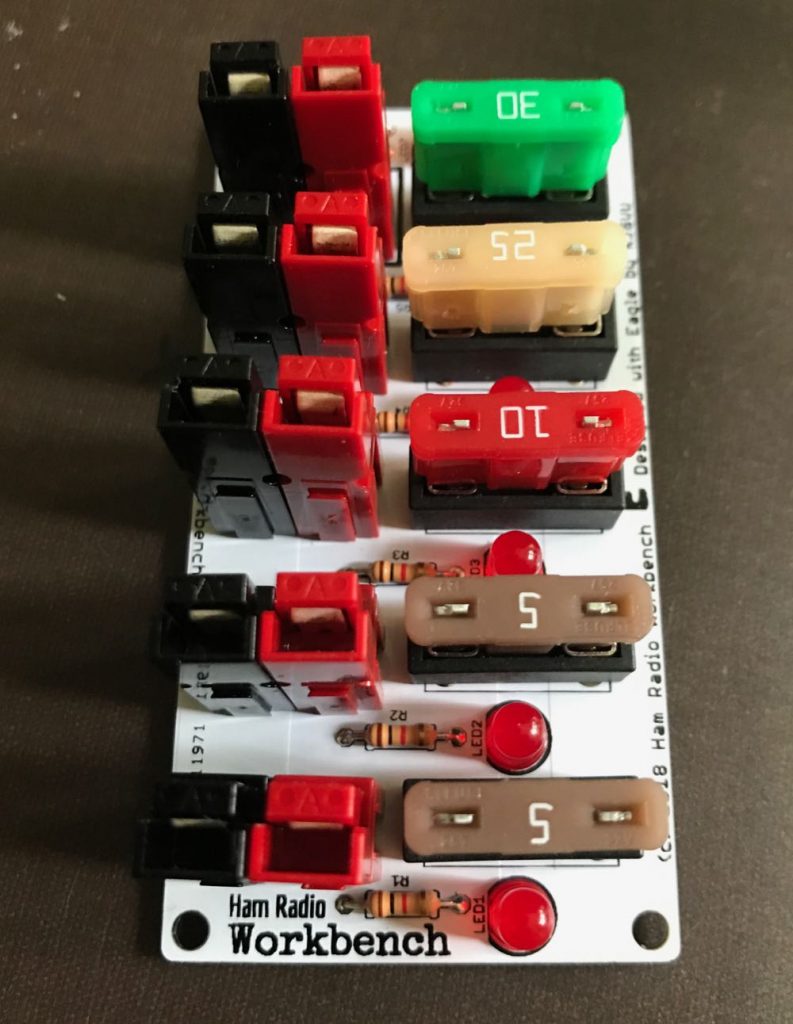
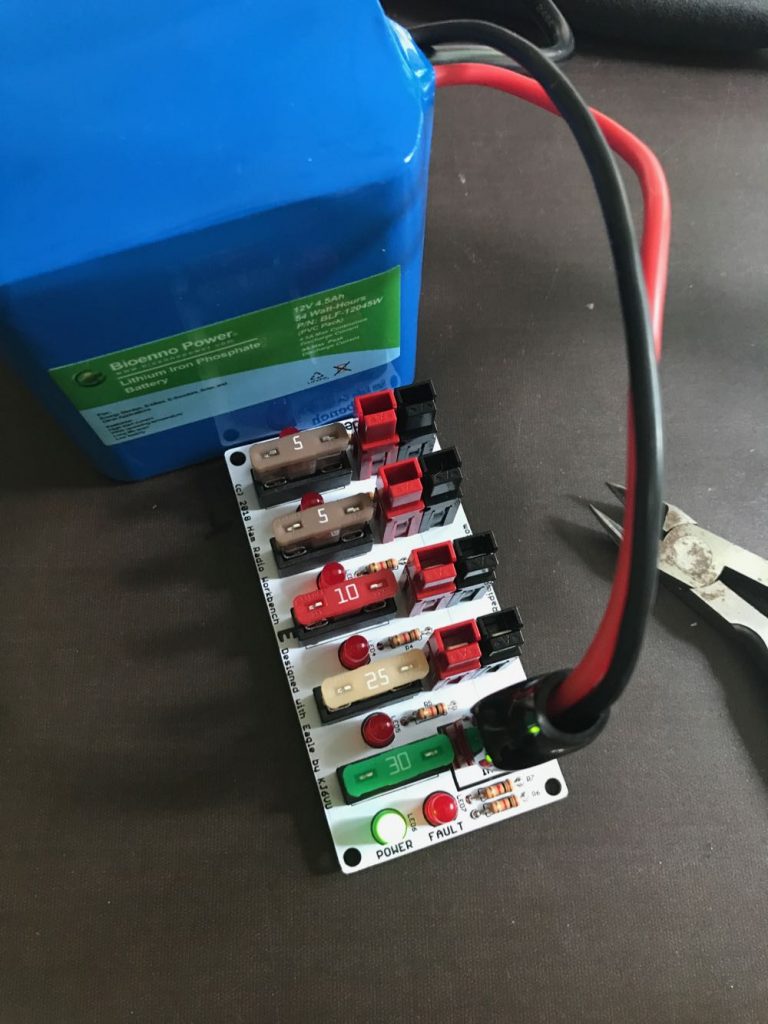
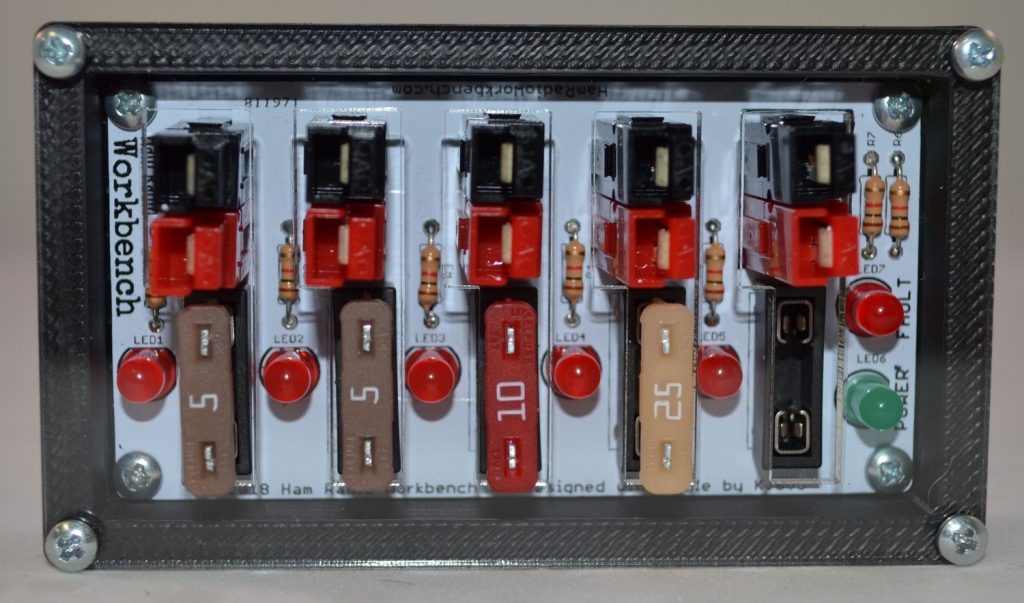
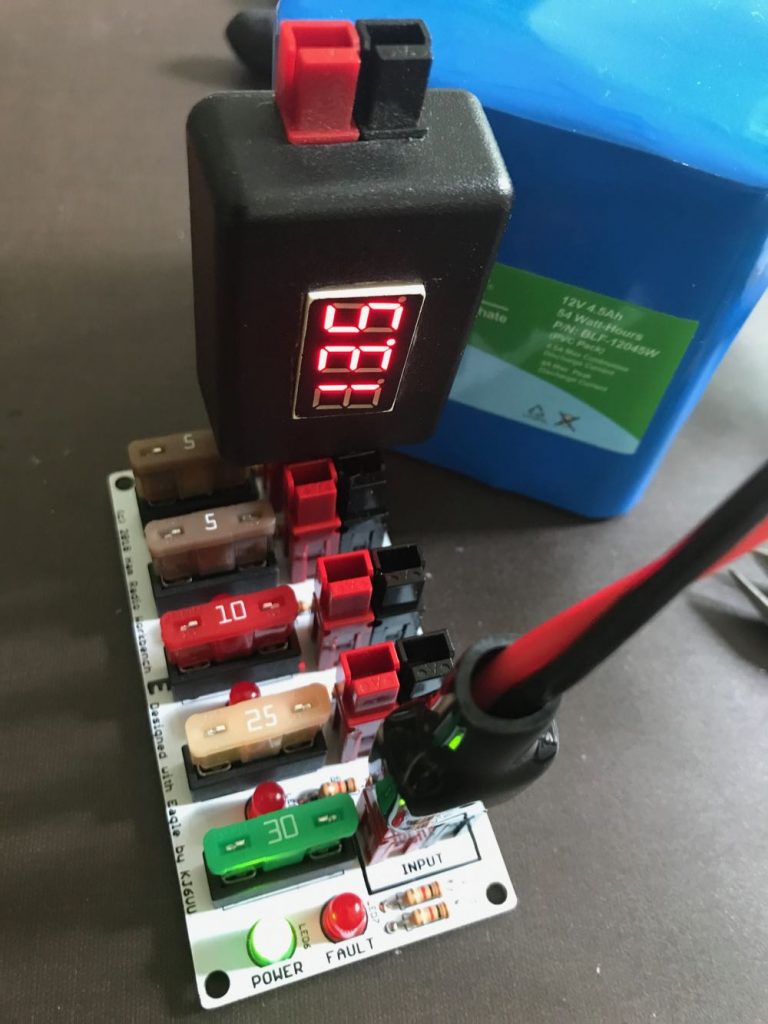

Pingback: Parks On The Air 101: What components do you need in a field kit besides a transceiver? –
Sadly the kit is no longer available….can get parts but no PC Board
As for the enclosure and the “backpack kit”, consider the idea of adding four supports to the top of the enclosure, this way, whjen operating in “open field” you may just flip the box upside down, the enclosure will protect it from light rain and the supports will leave enough room to pass the cables 🙂
As for the larger panel, please have a look at the “popeye” from Charles Wenzel
http://www.techlib.com/area_50/Popeye.htm
I think it may fit your needs for a simple, flexible power distribution system
That’s a fascinating way to power low voltage items. Thanks for sharing. Yeah, I’m sort of in the Anderson Powerpole ecosystem pretty firmly at this point. 🙂 I do appreciate the standard plug which makes it easy to swap out equipment here in the shack.
Thanks Thomas for mentioning this kind of part. Since I need to do any serious listening or ham work in the field to get away from dreaded noise, I may need to get something like this for power distribution. DC is definitely the way to go.
On a side note, just snagged one of these duffle bags from REI that has built in backpack straps. Looks sturdy enough for field ops. I am going to build some sort of frame to tie equipment to and place inside (with lots of foam padding). On sale until 9/2.
https://www.rei.com/product/118811/rei-co-op-big-haul-40-duffel
Hi Thomas,
A ham in my area, John K9JEB, offers similar power distribution, power connector, and battery charger kits:
https://k9jeb.com/
These look very well made.
73 Guy
Wow! Those larger panels are certainly worth considering! Looks like a ton of USB ports can be added as well. Thanks, OM!
Cheers,
Thomas
Exactly! I like the one that is sized to mount on top of a 7-9Ah sealed lead acid battery:
https://k9jeb.com/PowerTransferCharger.aspx
Indeed! That one is a bit of genius. I find, though, that I so rarely use gel cell/lead acid batteries these days after having discovered LiFePo batteries some years ago. Still: that could make for a very affordable portable power center!
Thomas, I’m on the same page! I’m transitioning to LiFePo4 batteries too. I have 3.3Ah and 5.0Ah versions currently. I love the light weight, the small size, and the nearly flat discharge curve!
I know the QRP community has latched on to this battery type, but you ought to write an article to introduce the SWLing community to the benefits.
Noted! Good point, Guy. I’ll make a note in the drafts folder!
Thanks Guy for the link. I don’t think I need 10 connections but it is there if needed.
Here is one at DX Engineering but not as nice as the one Thomas wrote about:
https://www.dxengineering.com/search/part-type/dc-multiple-outlet-panels/product-line/sotabeams-4-way-dc-distribution-boxes?autoview=SKU&sortby=Default&sortorder=Ascending
This is exactly the kind of useful information I read this blog for. I know ham radio isn’t the priority – shortwave is, and ham stuff is related to radio in general – but it is interesting to read and then it sends me off into a walk to find more information related to it. This is one of those posts.